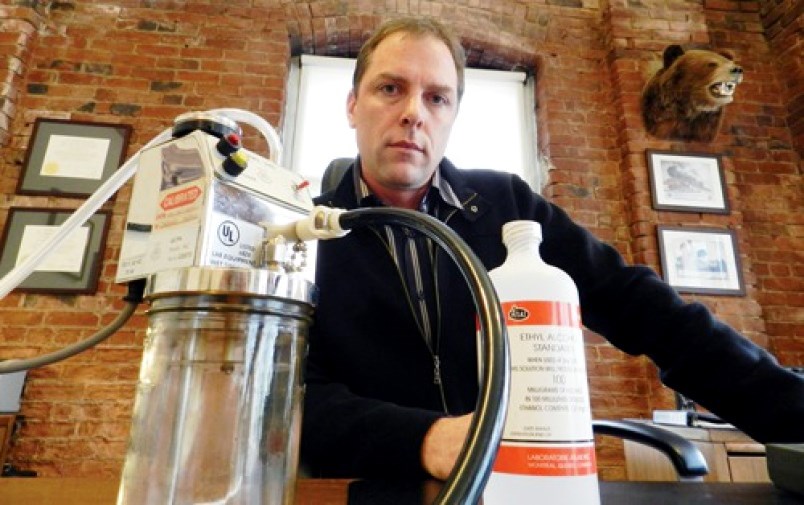Roadside screening devices capable of detecting whether a driver is under the influence of cannabis will not be widely used in the Tri-Cities when marijuana becomes legal later this month.
Coquitlam RCMP said no decisions have been made regarding the portable Drager DrugTest 5000, which was recently approved by federal Justice Minister Jody Wilson-Raybould for use in the field.
And Port Moody Police Department does not have plans to purchase the equipment and will instead relying on standardized field sobriety tests (SFST) to determine whether a motorist is impaired.
“We haven’t had sufficient time to evaluate how [the Drager] is going to assist us beyond the SFST,” said PMPD Const. Jason Maschke. “We will be monitoring the effectiveness of it through our law enforcement partners.”
He added that 60% of officers with the Port Moody department are trained to conduct roadside sobriety tests and one officer is certified as a drug recognition expert.
“We are looking to get more trained,” Maschke said.
Meanwhile, the RCMP told The Tri-City News a limited number of devices will be deployed in the region but E Division — the Mounties’ provincial headquarters — would not say whether the Coquitlam detachment was part of the rollout.
“No decisions have been made,” said media relations officer Sgt. Janelle Shoihet.
Recreational cannabis is set to become legal across the country Oct. 17, which has law enforcement looking at new ways of spotting and prosecuting impaired drivers.
According to Bill C-46, which officially introduced changes to Canada’s Criminal Code in June, drivers who are found to have between two and five nanograms (ng) of THC per millilitre of blood in their system could face a summary conviction along with a fine of a maximum of $1,000. People caught with more than five ng of THC per millilitre of blood could face up to 120 days in jail depending on the number of previous offences and whether any other substances, including alcohol, were detected.
Police in Port Moody and Coquitlam are not the only ones waiting for more information about the Drager before purchasing the equipment.
Departments in Vancouver, New Westminster and Delta have said they will not use the devices, which can detect the presence of THC and cocaine in oral fluid samples, according to a press release from the ministry.
None of the police departments said why the would not be purchasing the Drager technology but lawyer Paul Doroshenko said the devices are extremely unreliable. He told The Tri-City News that a study out of Norway found a 12% to 15% false positive rate for cannabis and an 80% false positive rate for cocaine.
It also takes between one and four minutes to get a sample, he added.
“A person has to swab their own mouth for four minutes with the mouthpiece,” Doroshenko said.
He added that the device then has to sit level while the saliva is analyzed, making it difficult to do proper readings at the roadside.
Doroshenko also questioned what happens to the saliva, which is capped in a small container, after the test is conducted.
“It has your DNA,” he said, later adding: “I think it is a big problem and I don’t think it is going to withstand legal challenges.”
@gmckennaTC
– with files from the New West Record



